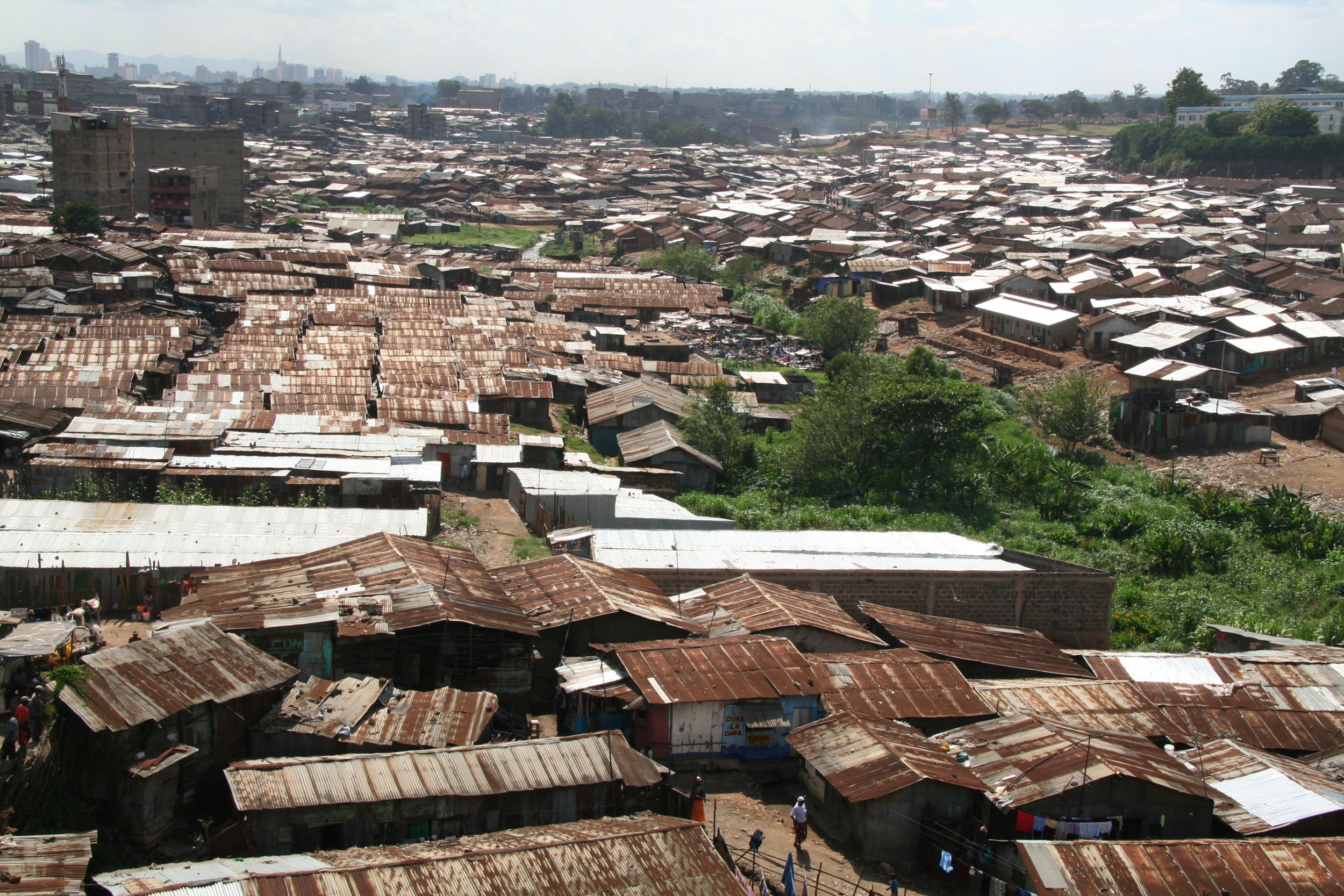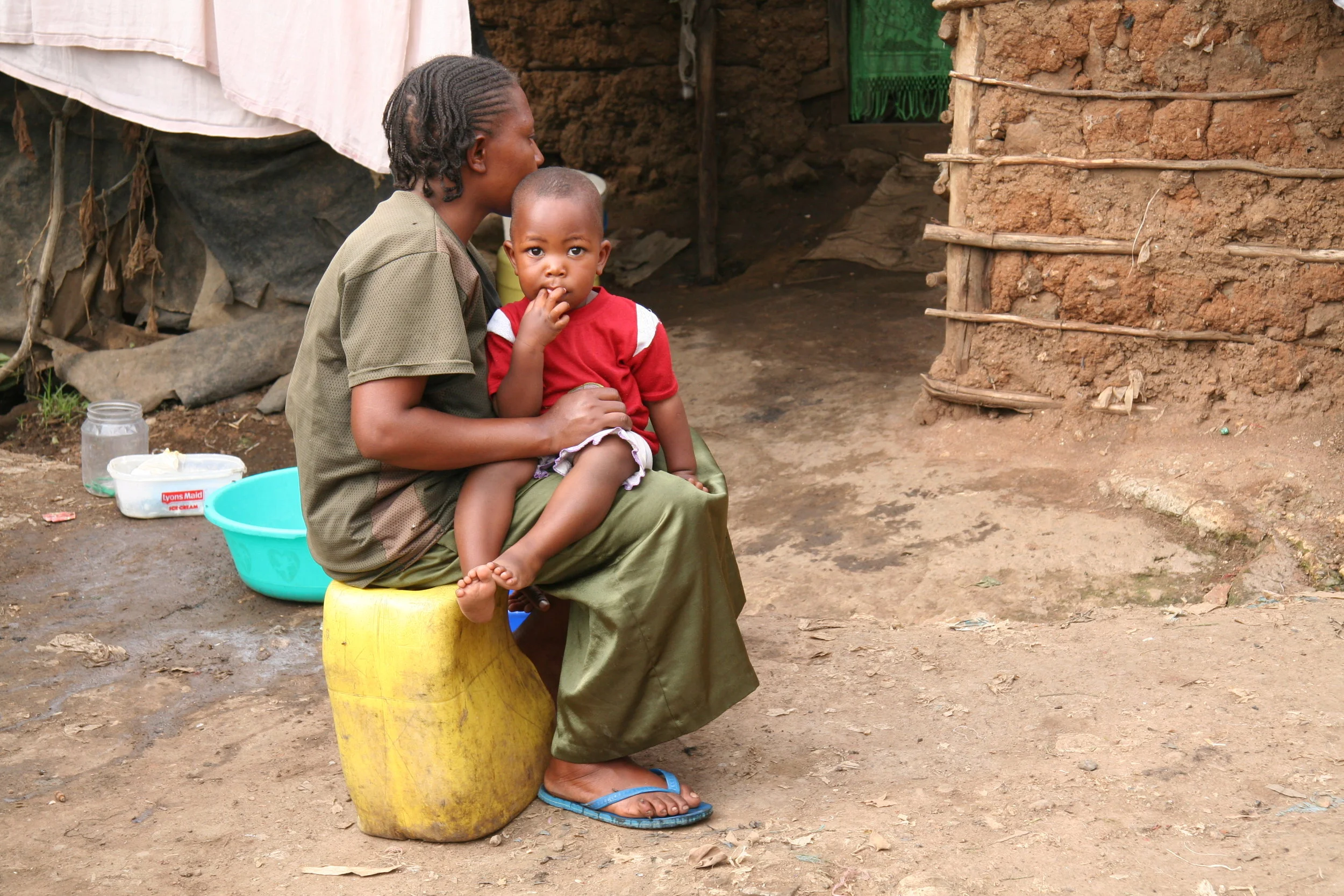Stories from Kenya
The slums of Nairobi
It is really difficult to describe in words the situation of people living in the slums of Nairobi. It is not only the size that is overwhelming, but the lack of basic infrastructure such as running water, toilet facilities, roads, schools and other things that are considered necessary in an urban society. In Kenya, there are no unemployment benefits or other social security benefits. Anyone who does not have a job needs to find a way to satisfy their hunger on a daily basis and meet the needs of the family. The number of unemployed single young mothers is innumerable. They wake up in the morning and take to the streets in search of a daily wage, for example doing laundry or doing the dishes for someone. The income for the day can be between 1.5 Dollars and 4 dollars, but finding a job every day is the hard part. During the average week, most of them will find work two to three times. Fro this income you may have to pay 25 Dollars in rent, buy food and send the children to school. However, the numbers don´t add up. The children go hungry, do not go to school and often end up on the streets begging. It's like winning a lottery to get admitted to the Harvest School at Child. There the children get a free education and receive a hot meal for lunch. Some students also join the dormitory where they receive full care. With such help, the whole family's life often changes dramatically.
The Masaai people of Loitoktok
The Masai tribe lives in Loitoktok. The Masai people's main livelihood has been herding for centuries. The Masaai were accustomed to moving between pastures according to the seasons. The livestock consisted of cows and goats of hardy strains. However, severe droughts between 2000 and 2009 killed 80-90% of the animals. Poverty and hunger therefore plagued the community. The Masai people have kept their customs and way of life largely unchanged. They practice polygamy and still circumcise young girls. When the girl reaches adolescence, she is considered old enough to marry. Then she is circumcised and married to the one who offers the best. This practice is now illegal in Kenya and the emphasis is on girls being allowed to go to school. However the harmful practice has by no means been eliminated. The majority of girls therefore undergo circumcision.
Thorunn and Samuel
Thorunn moved to Kenya from Iceland in October 2006. She started by renting a house for a children´s home and before long, it filled up with children in need. Here in the first picture, Thorunn is outside the house with some of the children in February 2007. At the same time she started a school support program for children who lived with poor families in the slums. Samuel Lusiru Gona had been working for the Kenya Navy for 18 years when he met Thorunn. In June 2007 Thorunn and Samuel got married and have been working together running the project ever since. In the year 2012 they managed to start the first Harvest schools. One in Nairobi and one in Loitoktok. Since then the schools have really grown and flourished.
The streetkids
Shortly after Thorunn started working in Nairobi, the news spread among street children in the area, that a white woman had come to the neighborhood to help street kids. So they showed up on her doorstep, asking to be taken to school. In the pictures to the left, taken in March 2007, you can see a group of 14 year old street boys outside Thorunn's house asking for help
Thorunn gave them sandwiches with jam and water to drink and later took them into the house. Most of them turned out to be illiterate and needed to start teaching them the alphabet from scratch.
The photo, taken 7 years later in July 2014, shows the three boys from this same group. There they have become young men in their final year of high school.
Erick Omollo
The young man in the middle is Erick Omollo. He is the one with the hat in the older pictures. At that time he had lived on the street for 4 years, or since he was 10 years old. He had lost all contact with his family and did not know where they were. Erick worked hard at his studies. He also learned to play the guitar, practiced singing and composed his own songs. It soon became clear that this was a young man with a lot of talents. And luck was on his side because 3 years after he came into the home, Thorunn and her staff managed to find Eric's mother and siblings. There were huge celebrations, as his mother had not seen him since he was little and even thought he was dead. Erick has been studying video and television production at a university in Nairobi. He also works to care for the younger boys at a school in Nairobi. Erick is a living testimony to how support from a sponsor can change lives.






























